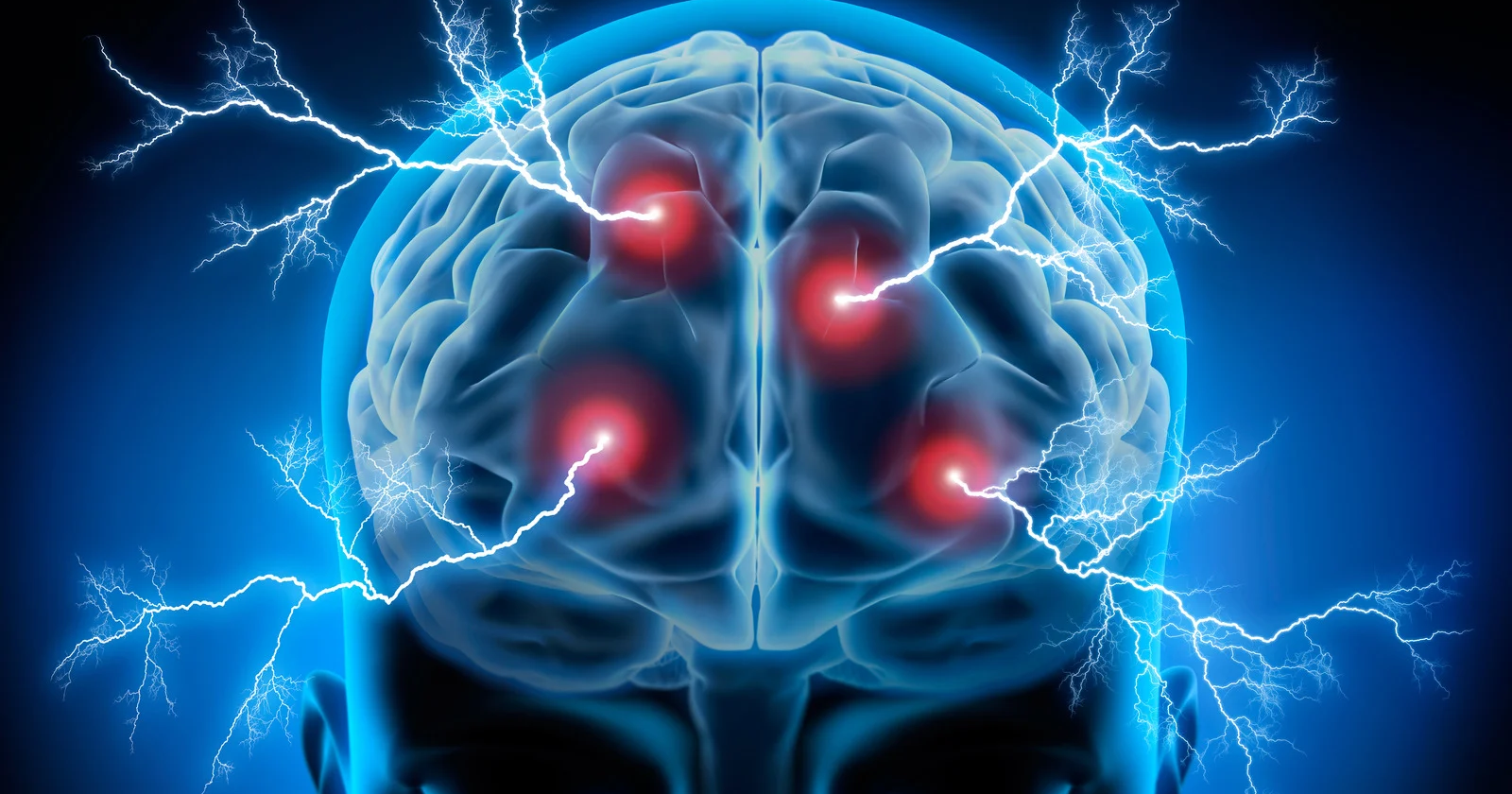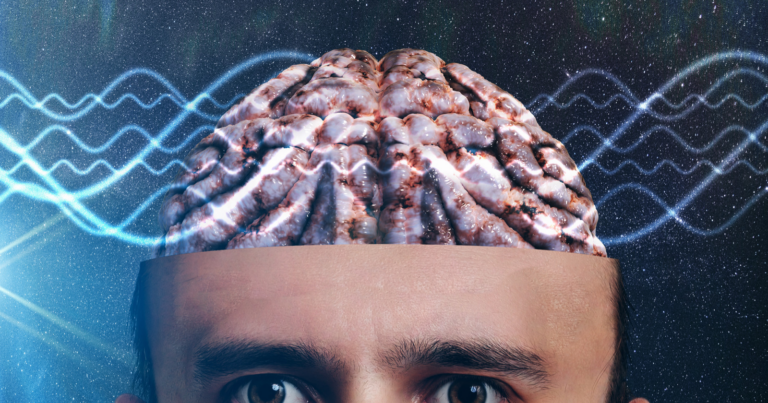MDMA significantly alters our brain chemistry.
This popular psychoactive drug influences neurotransmitters like glutamate and GABA.
But how does this occur?
We’ll unravel the mystery of MDMA’s impact, bringing to light the potential effects and consequences on our mental well-being.
Brace yourself for an insightful revelation.
Unveiling the Role of Glutamate and GABA on Brain Chemistry
When we talk about MDMA’s impact on brain chemistry, we focus primarily on two neurotransmitters:
- Glutamate, the main excitatory neurotransmitter
- GABA, the principal inhibitory neurotransmitter
MDMA’s interaction with these neurotransmitters is key to understanding its effects.
Glutamate plays a pivotal role in cognitive functions like learning and memory, while GABA keeps excitatory signals in check, contributing to mood regulation.
MDMA disrupts this delicate balance.
It triggers an excessive release of glutamate, leading to heightened neural activity. On the other hand, it suppresses GABA’s inhibitory effects.
This dual action results in the characteristic euphoria associated with MDMA use but comes with potential risks and consequences for our mental health.
MDMA’s Influence on Cognitive Functions
MDMA’s influence on our brain is profound, affecting our cognitive abilities and altering our perception.
One of the immediate impacts of MDMA use is a surge in sensory perceptions.
Users often report heightened feelings of empathy, euphoria, and a distorted sense of time. But what’s happening behind the scenes?
Underneath this enhanced sensory experience, MDMA instigates a flood of glutamate in the brain.
This neurotransmitter is heavily involved in our cognitive functions, including learning and memory.
MDMA’s interference with glutamate disrupts these functions, leading to potential memory impairment and learning difficulties.
It suppresses GABA’s inhibitory effects, leading to an overexcited state in the brain. This imbalance can trigger anxiety and agitation in some individuals.
Did you know that prolonged MDMA use can potentially lead to neurotoxicity due to excessive glutamate activity?
This underlines the importance of understanding the impact of substances like MDMA on our brain chemistry.
A little knowledge can go a long way in making informed decisions about our health.
The Aftermath of MDMA Use on Brain Chemistry
So, what happens after the MDMA-induced high wears off?
It’s worth noting that the immediate effects of MDMA are typically short-lived, but the aftermath can linger.
Once the surge of glutamate subsides, users often experience a ‘come down’, characterized by feelings of exhaustion, depression, and anxiety.
This is primarily due to the brain’s attempt to restore balance after the MDMA-induced disruption.
It’s like a pendulum swinging back – after the excessive neural activity caused by too much glutamate and too little GABA, the brain tries to compensate.
This often results in a period of low mood and reduced cognitive functions.
Take for instance, John, a casual MDMA user.
He enjoys the feelings of euphoria and sensory enhancement during the drug’s active period.
But he often experiences severe mood swings, anxiety, and difficulty focusing in the days following use.
These side effects reflect the brain’s struggle to regain equilibrium after MDMA’s interference with neurotransmitter levels.
Understanding these potential long-term effects is crucial as it sheds light on the hidden dangers behind the immediate pleasure derived from MDMA use.
How Can we Mitigate the Impact?
Given the profound effects of MDMA on our brain chemistry, you might be wondering if there are ways to mitigate these impacts.
While complete abstinence is the best way to avoid MDMA’s effects, harm reduction strategies can help minimize the risks for those who choose to use this substance.
First and foremost, it’s important to understand that MDMA use should never be a frequent activity.
The brain needs time to recover and restore equilibrium after each use.
Regular use can exacerbate the impact on glutamate and GABA concentrations, leading to more severe consequences.
Staying hydrated during and after use can help minimize some of the physical side effects associated with MDMA.
Seeking support from healthcare professionals can also ensure safe use and help manage any negative aftermath.
- Limit frequency of use: Regular use can amplify the effects on glutamate and GABA levels.
- Stay hydrated: This can help manage physical side effects.
- Seek professional support: Healthcare professionals can provide guidance for safe use and managing side effects.
Remember, knowledge is power:
Understanding the potential impacts of substances like MDMA on your brain chemistry is a crucial step towards making informed decisions about your health.
Empowering Through Knowledge
Let’s be honest here, substances like MDMA aren’t going away anytime soon.
In fact, their use in various social contexts seems to be on the rise.
So, what can we do about it?
We can empower ourselves through knowledge. By understanding the impact of MDMA on our brain chemistry, particularly on glutamate and GABA concentrations, we are taking a significant step towards safer practices.
I truly believe that information is our strongest ally in this quest.
It’s not about promoting or demonizing MDMA use.
It’s about being armed with the facts so we can make informed decisions and understanding that every choice we make has consequences.
These consequences can be far-reaching when it comes to our brain chemistry.
So, let’s continue to educate ourselves and others about these effects.
Let’s share this knowledge and promote a culture of informed decision-making.
After all, our brain is our greatest asset – let’s treat it with the respect it deserves.
What’s the Takeaway?
The takeaway here is simple yet profound: MDMA significantly impacts our brain chemistry, particularly affecting neurotransmitters like glutamate and GABA.
While its immediate effects might be enticing to some, the aftermath and potential long-term consequences underscore the importance of informed decision-making.
The goal isn’t to fear these substances, but to understand them.
In doing so, we can better navigate our choices and their potential impacts on us.
Knowledge empowers us, and understanding the workings of substances like MDMA on our brain chemistry is an invaluable tool for anyone considering its use.
Let’s continue to encourage a culture of understanding and awareness, emphasizing the power of knowledge in making informed choices about our health and well-being.











